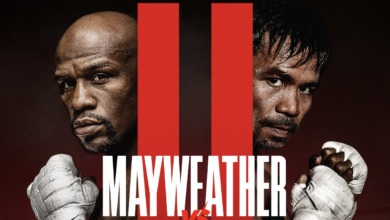Statistical analysis of match outcomes and probability in online slots and pro wrestling
Bring up games of chance or even pro wrestling, and people tend to have opinions—sometimes loud ones—about how fair or random things really are. Probability—it seeps into all sorts of activities, from the spinning colors of online slots to the less-than-spontaneous world of professional wrestling.
On the gaming side, platforms rely on cold math, those ever-present algorithms that churn out each outcome—there’s no improvisation built in, not really. Wrestling, real or staged, falls somewhere else on the spectrum. How victories are decided, well, it’s not always about the numbers. Getting a handle on these differences might actually clear up a few stubborn myths about luck, skill, and what’s truly random. Industry research, plus data from the odds-obsessed angles of both fields, throws up some intriguing parallels—but also some pretty sharp lines in the sand. Numbers explain a lot, although every now and then, it’s clear that someone behind the curtain can just, well, rewrite the script.
Probability structures in online slots
At its core, every slot game revolves around chance—no big secret. So, how do modern online slots handle that? Pretty much everything depends on a thing called a Random Number Generator, or RNG for short. Outcomes leap out from a tightly defined mathematical net that, honestly, doesn’t care who’s playing or when. Unlike games involving strategy or skill, online slots in the online environment are constructed solely on automated probability matrices.
Many players eye the RTP, or Return to Player percentage, hoping it signals friendliness—or at least less pain. Numbers range from the low end to unusually high “loose” titles. That sounds reassuring, but it only frames what a player might expect to get back on a very fortunate machine.
Day-to-day, luck can twist strangely. Someone may score small wins in quick bursts, while another loses steadily. Over time, the math evens out. Each spin stands alone, the reels combining into probabilities. Nothing changes the odds—not on a true slot, where every pull forgets the last.
Methods of outcome determination in professional wrestling
Wrestling—well, it flips the script on statistics in more ways than one. For big-name promotions, the results are engineered for suspense and story, not for athletic chaos or pure skill. Writers and suits in the back room decide who wins long before the bell rings, so true randomness never really enters. Predictive models don’t get much of a foothold. Any numbers you see posted by betting sites? More rumor-driven than you might think, with leaks and storyline clues shaping those odds instead of something you’d call probability.
But let’s not lump all of wrestling together. In amateur or “real” pro wrestling—college, Olympics, that kind of thing—numbers can actually say something. A 2024 report, for instance, dug into live match data and found that when a wrestler managed to lead by 10 points, the odds of holding onto that win were, well, close to certainty: 99.9%. Push that gap to 12, and in their sample, a comeback just didn’t happen. Their statistical framework ended up around 86% accurate in outcome prediction. All of this, though, only underscores the gap between predetermined matches and sport—the models here rely on point gaps, old match results, and maybe a hint of gut instinct.
Contrasts in statistical modeling and predictability
Stacking up online slots against wrestling shows just how different the two models are. Slots run on numbers the casino knows to the decimal: a 95% RTP means the house will keep 5% of bets over time, and while jackpots happen, the long-term outcome is predictable. Some players get lucky, but most don’t—and that’s by design. Wrestling, by contrast, doesn’t follow mathematical rails.
Scripted matches play out to fit storylines and crowd reactions, not probability tables. Even when stats suggest trends, they’re written in by whoever’s steering the narrative, not dictated by chance. Amateur wrestling sits somewhere in between: favorites usually win, but pressure, human error, and the unexpected always leave room for surprises.
Comparing online slot randomness and wrestling outcome design
Contrast really jumps out when the sheer math of slots goes head-to-head with the twisty world of wrestling scripts. Slot machines are, by regulation, subject to ongoing third-party checks—random is supposed to mean random, more or less. Human bias, the kind that might favor one person or another, is boxed out by code. Everybody hitting that spin button, theoretically, sits on an even playing field; what shows up is what the numbers allow.
It’s not the same in the world of pro wrestling entertainment. There, storyline and the roar of the audience routinely trump statistics. The favorite, the underdog, or some long-shot character might win or lose depending less on what’s “fair” and more on what writers feel like doing this week. Tracking who wins most often just backs this up: streaks are assigned, not discovered.
Still, genuine wrestling competitions try to bottle the unpredictable mix of skill and mental pressure. Bookmakers and coaches use those models despite knowing that, sometimes, odds get turned on their head by a lucky move or a bad day. In both gambling and sports, the numbers lay a groundwork, but the end result doesn’t always play along.
Responsible gambling and informed choice
It’s worth pausing here. Probability gives some clues, yes, but for each spin (especially with online slots, where—let’s be honest—the house has an unshakeable edge over time), nobody should count on winning. Most folks will lose. Chasing patterns or “hot streaks” rarely pans out. Setting firmer limits and actually understanding the built-in expectations… those steps might help keep things in bounds. No harm in enjoying the thrill, but looking for a payday is another story. And if gambling ever gets out of hand, it’s always smart to reach out for support. Knowing a bit about how the math works might make those choices a little easier—or at least, that’s the hope.

